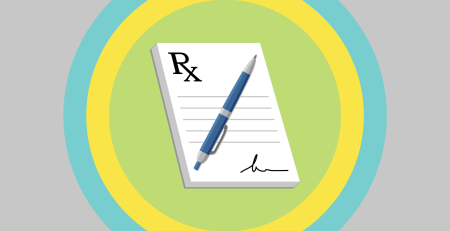The curious case of drug contraindications
So your doctor has identified your health problem and it’s one a prescription can help fix. Off you go to fill it and start taking as prescribed. After all, the sooner you begin, the sooner you’ll begin to feel better.But wait! Before you can start taking your medicine, there are some things you should know. One of the most important is possible drug contraindications.
Not all drugs work well together. Not all drugs go well with certain foods or beverages either. Let’s take a look.
What exactly is a contraindication?
Medline defines “contraindication” as “a specific situation in which a drug, procedure, or surgery should not be used because it may be harmful to the person.”
Most of us are familiar with pregnancy as a contraindication for many prescriptions. That’s because some drugs can harm the developing baby when they cross the placenta. But contraindications can be a little less obvious, too! For instance, you might need to avoid eating dairy products, drop otherwise healthy foods out of your diet, stop taking common over-the-counter medications, or even limit your exposure to the sun.
Get informed about your contraindications!
Before your doctor prescribes a medication for you, he or she may review your medical history, your current prescriptions if you have an ongoing medical issue, and anything else which may interfere with your taking the medication properly and safely. If your doctor doesn’t volunteer this information, there’s no harm in asking!
For example, some medications cannot be taken together. If you are on blood thinners, like warfarin for example, you should not take aspirin as that is also a blood thinner.
Your pharmacist can review any other issues with potential for contraindications. For example, your medication may come with guidelines to avoid certain foods while taking your medicine. And again, you can always ask. Watching out for contraindications, and answering your questions about them, are a key part of a pharmacist’s job.
You should also let your doctor and your pharmacist know if you’re taking any over-the-counter medications or supplements (vitamins, herbal medicines and so forth) as these may also interfere with the effectiveness of your medication or even cause additional health complications.
Here are some common contraindications you might encounter.
Contraindications are most common for people with chronic diseases such as heart disease, high blood pressure, diabetes, thyroid disease and depression, as well as people who have had or are at risk of having a stroke.
This list gives you a baker’s dozen of frequent contraindications you may encounter!
- Grapefruit or pomegranates can alter the effectiveness of statin-based cholesterol medications.
- Decongestants should be avoided if you have high blood pressure.
- Leafy greens like kale or spinach can increase levels of vitamin K, which can be a risk for people taking blood thinners for stroke prevention.
- Vitamin supplements can disrupt the chemical balance needed in your body for certain dosages of medicines to work their best.
- Antibiotics and common pain relievers should be avoided if you’re taking blood thinners.
- Cold and allergy medications can intensify the effects of different medications.
- Alcohol can change the liver’s ability to filter medication from the body, and if you drink while taking certain antibiotics, the combination can make you sick.
- Salt can increase the amount of liquid kept in your body and this can affect the way your body will process your medication.
- Chocolate and peanut butter can affect how blood pressure medications and some anti-depressants will work for you.
- Licorice can reduce the benefits of certain medications used for congestive heart failure and abnormal heart rhythms and alter the effectiveness of blood pressure drugs and diuretics (water pills).
- St. John’s Wort is a popular supplement that can reduce the concentration of your medication in your blood. It is contraindicated in people who wish to use Viagara.
- Ginseng can interfere with bleeding effects of Coumadin, Heparin, aspirin and nonsteroidal anti-inflammatory drugs (NSAIDs) such as ibuprofen (Advil, Motrin), naproxen (Aleve) and ketoprofen (Orudis). Combining ginseng with antidepressants can cause headaches, sleep issues, nervousness and hyperactivity.
- Antihistamines can cause your blood pressure to increase and may also speed up your heart rate if you’re taking medication to lower it.
Prevention is the best way to avoid problems with contraindications.
- Become informed about how the drug will work for you. Ask your doctor or pharmacist about possible contraindications and what you should look for.
- Make them aware of your medication history. Keep a record of everything you take, including prescription drugs, OTC drugs, and dietary supplements (including herbal medicines).
- Ask about food, beverages, dietary supplements and other drugs with the new drug you have been given.
- Read all the labels for prescribed drugs and over-the-counter medications.
- Develop a relationship with your pharmacist (or pharmacists) and make sure to inform everyone you work with about all the prescriptions you take.
Follow these basic guidelines and you’re well on your way to having a trouble-free experience with your medication!









